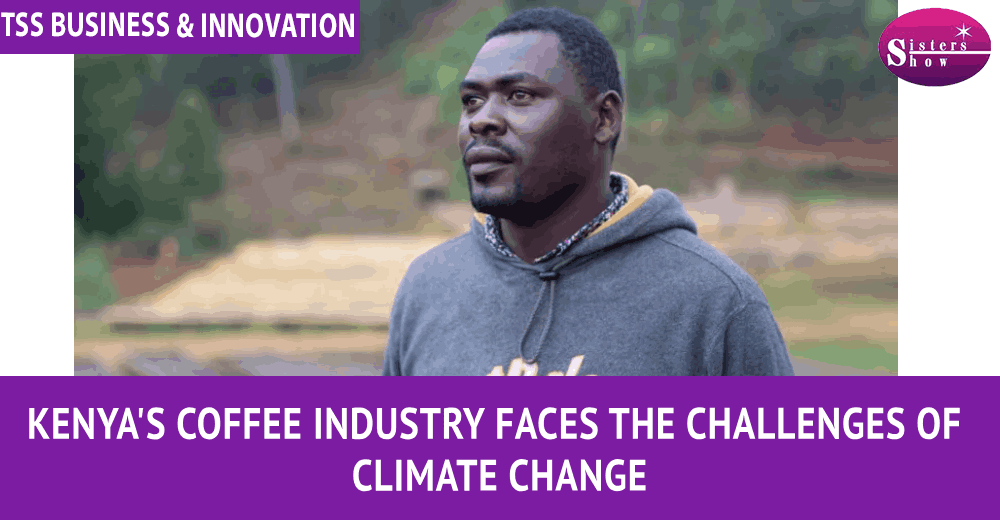
Kenya’s Coffee Industry Faces the Challenges of Climate Change
Introduction to Kenya’s Coffee Industry
In the lush, volcanic highlands of Komothai in central Kenya, farmers like Simon Macharia are known for producing some of the best coffee in the world. On the small plantations scattered across the hillsides, these dedicated farmers carefully cultivate coffee beans that have become a symbol of Kenya’s rich agricultural history.
The Role of Coffee in Kenya’s Economy
Kenya’s celebrated coffee, especially the prized Kenya AA beans, is well known for its high quality, rich body, and fruity flavor. These beans are in demand worldwide, making Kenya one of the top exporters of coffee globally. For generations, coffee farming has supported many families and contributed significantly to the economy, creating jobs and livelihood opportunities for thousands of farmers.
The Labor-Intensive Coffee Farming Process
Growing coffee is not an easy task. It requires careful attention to detail and hard work. From pruning and weeding to fertilizing and harvesting, the coffee plants demand a full-time commitment. For farmers like Mr. Macharia, coffee farming is a passion and a livelihood, involving intense concentration from the moment the plants start to bloom until the harvest season.
Farmers like Mr. Macharia have invested heavily in their coffee crops, as coffee trees take years to mature. The journey from planting to harvesting is long, but for farmers in Komothai, the process is rewarding.
The Challenges Faced by Farmers
While coffee farming has been successful in Kenya, climate change is now posing a significant threat to the industry. Coffee plants are highly sensitive to temperature fluctuations and require specific weather conditions, such as humid temperatures and consistent rainfall, to thrive.
Changes in climate patterns, including erratic rainfall and cold temperatures, are becoming more frequent. This has led to a decrease in coffee production in Kenya. As climate change intensifies, the spread of coffee diseases such as coffee berry disease and leaf miners is becoming more common, making it harder for farmers to maintain their crops.
Farmers in central Kenya are taking action by experimenting with various climate adaptation techniques. These include planting trees to provide shade for the coffee plants, which can help maintain the ideal growing conditions for the crops.
Protecting the Future of Coffee Farming
Despite the challenges posed by climate change, farmers are determined to protect their crops and livelihoods. The Kenyan coffee industry, which employs around 150,000 people, is working toward long-term sustainability by focusing on innovative solutions to combat the impact of climate change.
Mr. John Murigi, the chairman of the Komothai Coffee Society, emphasizes the importance of addressing both the economic and environmental challenges that coffee farmers face. With climate change having a significant impact on coffee production, farmers must adopt new farming techniques that promote resilience against extreme weather patterns.
While some farmers remain cautious about the future of the industry, the passion for coffee remains strong. Through the collective efforts of farmers, government bodies, and organizations, there is hope for a sustainable future for Kenya’s coffee industry.
The Positive Future of Kenyan Coffee
Kenya’s coffee industry has faced numerous challenges, but farmers are finding innovative ways to adapt. By investing in sustainable farming practices and climate change adaptation techniques, they are working to secure a bright future for Kenya’s celebrated coffee.
The commitment of Kenyan coffee farmers, their dedication to quality, and their determination to overcome challenges make Kenya’s coffee industry one of the most resilient and admired in the world.
Don’t miss out on the latest updates. Stay updated with Business & Innovation with The Sisters Show. Get all the details and never miss a beat!
Read More:- A COMPREHENSIVE APPROACH TO TACKLE STATE CAPTURE IN SOUTH AFRICA




